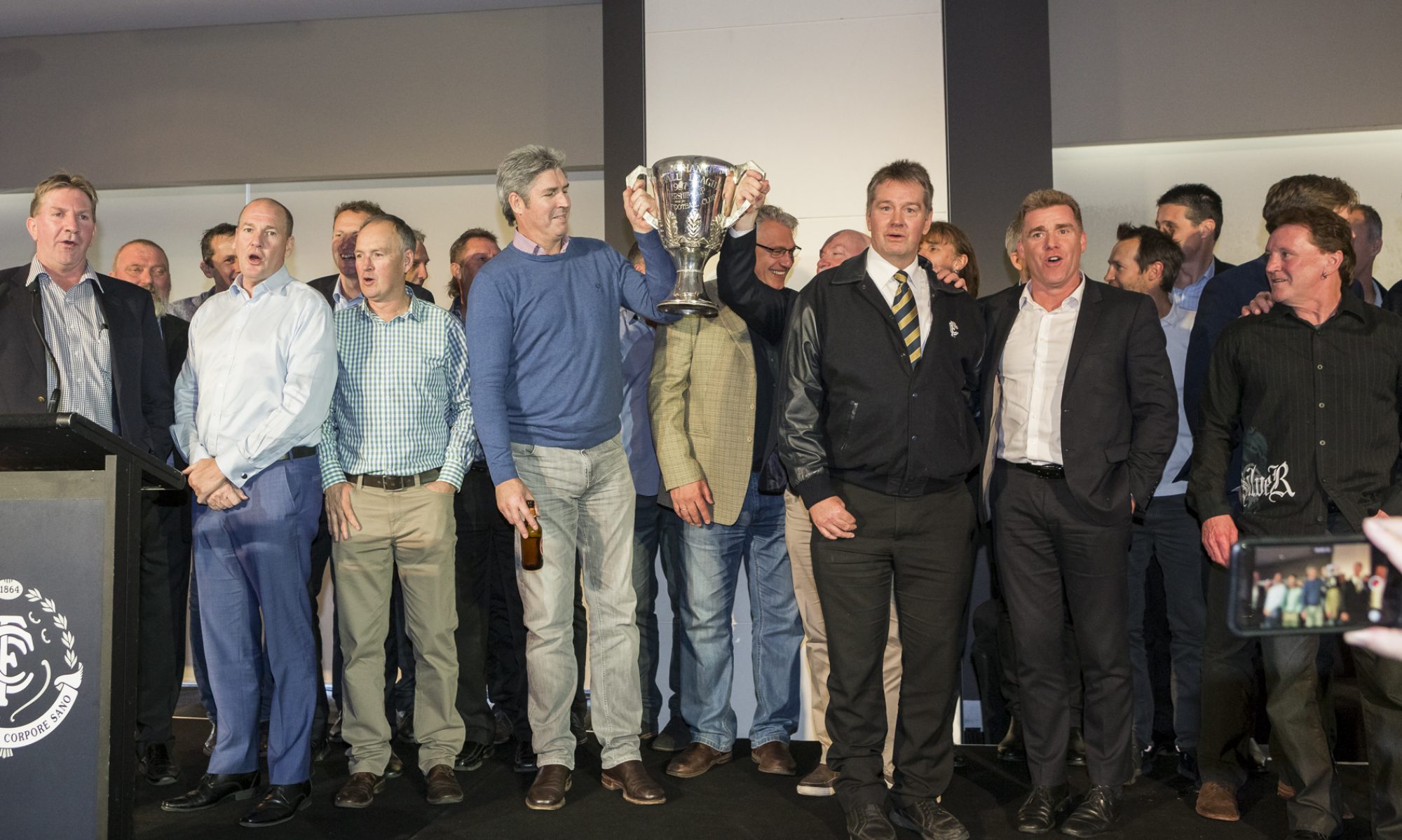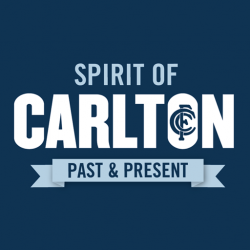
The sole object of the drill appears to be shuffling the pill among the players at a distance no less than intimate kissing range. It’s a totally whacky thing to observe for anyone like myself who is steeped in the ancient ritual of a warm-up lap and casual kick-to-kick before games. Now, the Hot Potato Shuffle (like the iPod is to music) has become a ubiquitous feature of football, happening constantly during games, and not just before them.
We know who invented the iPod but who was responsible for this other thing? My research has led me to conclude it was Essendon’s 1993 team – the ‘Baby Bombers’ who won that year’s premiership – which was responsible.
Here is how I think it happened. At the start of 1992, under the stewardship of coach Kevin Sheedy and astute football manager Danny Corcoran, Essendon boasted an outstanding coaching panel that included reserves coach Denis Pagan and assistant coaches Neale Daniher and David Wheadon. Highly regarded recruiter Noel Judkin was also on board.
Sheedy had declared he wanted change and creativity. A new plan was discussed by the panel and hatched: ‘quick hands, speed kills’. Lurking among the Pagan-coached reserves premiership team of 1992 was a special crop of youngsters ripe for schooling in the new plan, including James Hird, Joe Misiti, Mark Mercuri, Steven Alessio, Ricky Olarenshaw, David Calthorpe, Michael Symons and Paul Hills.
The following year, these Baby Bombers progressed to the senior Essendon team. They had already been stamped with Pagan-style commitment to win the contest and adherence to the new team rules and playing style the coaches had introduced them to. During 1993, they also benefited from playing alongside senior luminaries including Michael Long, Mark Harvey, Mark Thompson, Paul Salmon, Gary O’Donnell, Gavin Wanganeen and Darren Bewick.
Adding to the quality influence of leadership that these players represented, veteran champion Tim Watson was coaxed from retirement. As the season progressed, the combination of youth and experience and quick hands was beginning to gel. My observation is that over time, the 1993 Grand Final teams, Essendon and Carlton, had grown to dislike one another intensely, eating at the heart enough to elevate it to a fierce rivalry.
However, there is a dictum in warfare: learn from the enemy. On the Carlton side were the genius hands of Greg Williams. How did he do it? Opponents spent considerable time studying not how to stop ‘Diesel’ – an assignment that was nigh impossible – but how to copy him. While the total package was not easy for mortals to replicate, his method of handballing and not kicking when he picked up the ball in heavy traffic became a model for team rules.
Another ploy hatched by Essendon in 1992 was the use of quick hands to get away from a tackle, with the player instructed to aggressively run and carry the ball into attack. Carlton started the 1993 Grand Final clear favourite. By quarter-time, the Blues looked a beaten side, trailing by 30 points. Essendon was just as fierce at the contests as Carlton, but was also dancing ahead in tune to the quick shuffling of the ball that left the Blues bamboozled and flat-footed.
Long and Mercuri were sublime exponents. Thompson is also listed in the AFL Record Season Guide among the best players that day. Sitting in the box that day was Wheadon, architect of the quick hands, speed kills philosophy. Essendon in 1993 had struck a high note. Long won the Norm Smith Medal and Wanganeen the Brownlow Medal. The Baby Bomber brand was born.
Today, not so surprisingly, we are watching a team that does the Hot Potato Shuffle more often and better than anyone else. Geelong has featured in the past three Grand Finals and won two of them. At the helm is coach ‘Bomber’ Thompson – and in the background tutoring the Cats is Wheadon, the club’s skill acquisition and game development coach. It’s no coincidence, is it?
Ted Hopkins is a Carlton premiership player and founder of Champion Data. His current project is TedSport, a high performance data analysis and consulting service.
This column was first published in the AFL Record. Copyright AFL 2010.

